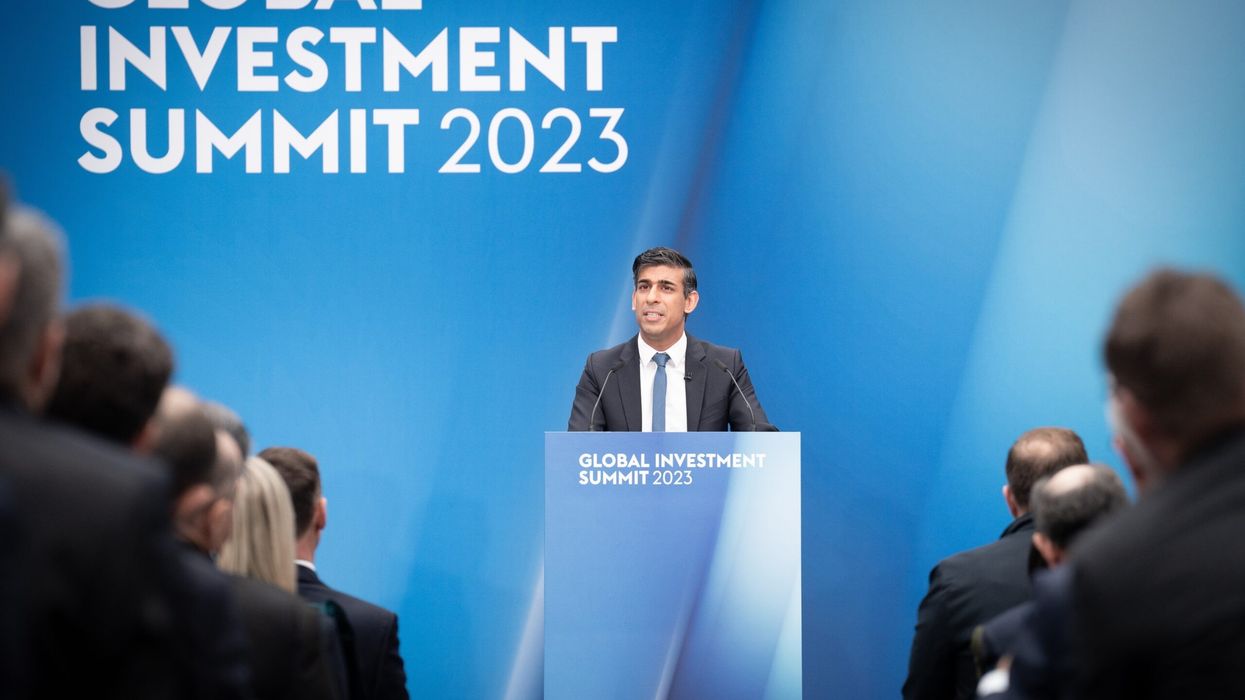Rishi Sunak voiced strong support for skilled migrant workers on Monday (27) during a key speech at the Global Investment Summit, addressing the growing pressure on his government to reduce the escalating immigration figures.
The prime minister vehemently praised the country's “most competitive visa regime,” making it the best in the world to invest and do business in.
His intervention comes against the backdrop of discontent within his own Conservative Party ranks after last week's Office for National Statistics (ONS) data revealed record-high annual migration to the country and former home secretary Suella Braverman's allies laid the blame squarely at Downing Street's door.
“We don't have a monopoly on talent in this country, and we recognise that nearly half of our most innovative companies have an immigrant founder,” Sunak said in his speech to a gathering made up of the CEOs of some of the world's biggest businesses.
“So, if you're an innovator, an entrepreneur, a researcher, you should know that the most competitive visa regime for highly skilled international talent is right here in the United Kingdom,” he said.
Sunak singled out the High Potential Individual (HPI) visa as an example, which means a young person graduated from a global top 50 university can come to the UK with family for two years to just “explore, work, study, invent”.
"Nothing like that exists anywhere else in the world. And that tells you everything about our pro-innovation, pro-growth, pro-business philosophy. So that's the opportunity here in the UK. That's why you should believe me when I say this is the best country in the world to invest and do business,” he added.
The underlying message to the warring factions of his party will not be lost on the day ‘The Daily Telegraph' reported at length on a four-point migration plan agreed between Sunak and Braverman when he took charge at 10 Downing Street last October.
The newspaper claims it has seen a copy of that pact in which Braverman proposed to close down the Graduate Visa route, also referred to as a post-study work visa, allowing graduates the chance to stay on and gain work experience for two years after their degree.
According to last week's ONS figures, Indian nationals represent the largest group of students granted leave to remain on this route, representing 43 per cent of grants.
Other crackdowns demanded by Braverman included restricting the number of dependents, or family members, legal migrants could bring with them and restricting student visas to only a select group of top tier UK universities.
Besides, cutting down sharply on work visa grants, the former home minister wanted the minimum salary threshold for a foreign skilled worker to be raised from the current £26,000 to £40,000.
Braverman, who was unceremoniously sacked from the Cabinet earlier this month, had alluded to such a pact in a stinging departure letter accusing her boss of reneging on his promises to implement tough visa measures to bring down migration to the UK.
With immigration expected as a dominant issue for the electorate at a time when net migration figures hit an all-time high of 745,000 for 2021-2022, the battle lines are being drawn within the Tory ranks ahead of an expected general election next year.
(PTI)




